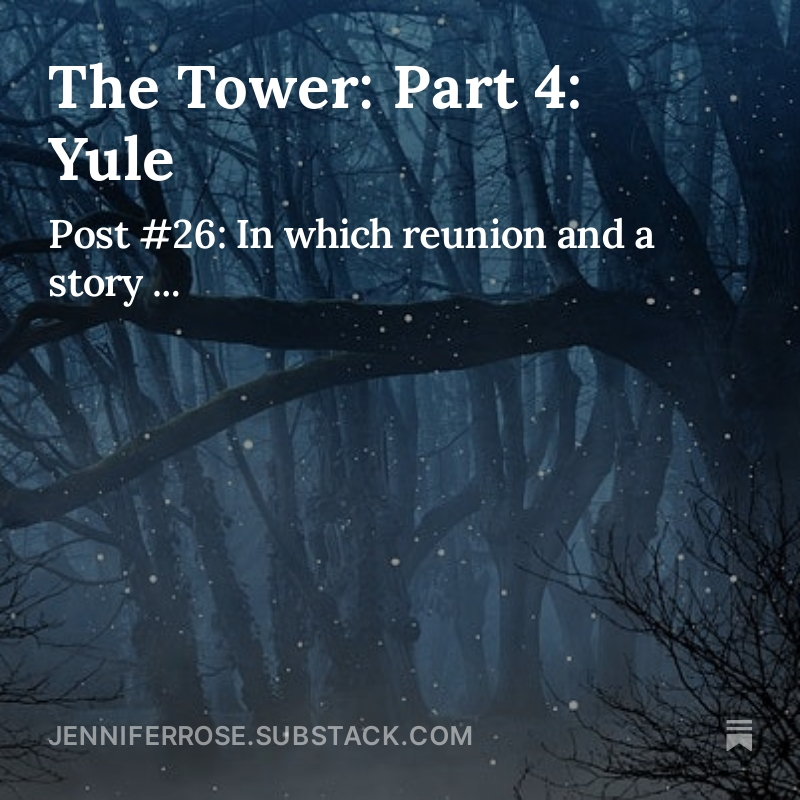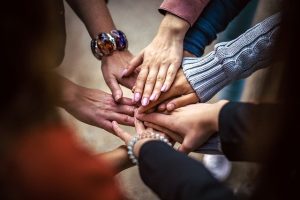by Jenny Rose | Jul 20, 2024 | A Flourishing Woman, Self-Love
The more battered I feel by the news cycle and the daily externals of my world, the more important it is to spend time in solitude, focusing inward and practicing love and trust with myself.

Photo by Cristian Newman on Unsplash
(It sounds delightful, doesn’t it? So wise and functionally adult! It doesn’t read like tears; trauma; dumping feelings onto the page; wrestling with fear, despair, perfectionism, heat, humidity, housework, and (most recently) a fiery case of athlete’s foot while the garden turns into a steaming jungle outside my locked and blinded windows and the air conditioner gently roars.)
I recently reread The Mermaid Chair by Sue Monk Kidd. I haven’t read it in a long time, but it was next on the shelf, so I cracked it open. I came across a line I don’t remember and evidently didn’t remark on previously: “…I’d never done anything that took my own breath away …”
The speaker is a middle-aged woman and that line grabbed my attention.
We are consumed by externals. The male gaze. The public eye. What others think of our looks, our words, our actions. Is our virtue signaling adequate and prominent? Are we pleasing the right people? Are we flourishing our flags with sufficient outrage and hostility? Are our masks and identities firmly in place?
The more we focus on externals, the less we pay attention to our relationship with ourselves and the more broken we become.
Why don’t we think about taking our own breath away?
This might not seem important. After all, what’s more exquisite than the feeling of being in love? The sight and smell, sound, taste, and texture of the loved one. Every expression. Every word. Every insignificant detail, past and present, is breathtaking. For a time. How could we ever hope to compete with that feeling, that excitement?
But what happens if we never take our own breath away?

Photo by Jeremy Bishop on Unsplash
Some of my favorite stories are oral tales about the selchies; creatures who are men and women on the land and seals in the sea. Most of the time the old stories are about a woman whose sealskin is stolen by a man; she is coerced into staying with him, often raising a family, with the promise he will one day return her skin. Though the captured selchie may love her children and even the man, as time passes she begins to lose her vitality and wither, for she is cut off from the sea, a part of who she is. She must have what she is made of to be whole.
As a young woman, I had no thought in my head beyond finding a husband, someone who wanted me and would love me. I didn’t think about the love I needed to feel for him; I assumed I’d do whatever it took to be a “good wife.”
Two divorces later, much older and wiser, I realize how sad this is. Now I know no child or lover, no matter how wanted or beloved, can ever leave us breathless in the same way we can ourselves. Not only that, when we rest all our being on external love, when the object of our love leaves and the feeling is gone we are left more impoverished than before, more embittered, more lost.
Taking our own breath away gives us something we never lose; amazement for our own courage, or determination, or creativity. We always remember that thing we did, and marvel at ourselves. We develop confidence and trust in ourselves. We know we can struggle through obstacles, defy odds, learn a new skill, finish a big project, or take a leap in the dark. We know we can face our own fears and beliefs, and challenge them.
I believe this is a big part of what a midlife crisis is about. If we don’t push ourselves beyond our comfort level we wake up one day bored and apathetic, and wonder if this is it. Is this all life is, the familiar round of work, home, family, and friends?

Photo by Joshua Rawson-Harris on Unsplash
We begin to think and dream about something more, that milestone we never achieved, that place we never visited, the opinion we never expressed, the art we never created, the truth we never dared tell.
We want … something. We need … something. Typically, we spend a lot of money trying to fill our craving, but nothing works for long because we’re looking for some intangible piece of ourselves, something stolen, something lost, something rejected. Perhaps we’re searching for our own permission or courage. Our quest becomes internal rather than external because (to our shame) we have a good life, a good job, a good-enough spouse or lover, a beloved child, yet we are not satisfied.
We want what we are made of.
No one can tell us what that is. No one knows. We have hidden it successfully from ourselves all our lives, after all. If we are lucky, one day we know what to do and have the means to do it. The outcome doesn’t matter. What matters is that we do it, we leap without a net, we create in a frenzy, we open our throats and speak our truth at last.
We take our own breath away.
Moving to Maine from Colorado was like that for me. How did I do it? I have no idea. I do remember my determination, though. I remember saying to myself I was going to do this thing no matter how impossible it was, no matter what others said about it (and me), no matter how many obstacles I encountered (I borrowed money from a friend for the first time in my life), no matter how terrified and anguished I was, I was going to do it. If I had to crawl on my belly all the way, I was going to do it.
And I did (in a U-Haul, not on my belly). And it took my breath away. Still does.
In general I’m a cautious, even conservative person. (In spite of my friend who affectionately calls me a dirty hippy!) I think things through carefully. I research all the options. I consider consequences. But sometimes this longing to find and express what we are made of is so strong we can’t think about it calmly and rationally. We are compelled beyond all that, pulled helplessly by the strength of our need to reclaim and express some lost part of ourselves. We don’t care about consequences. They are less important than finding ourselves.
I wonder if it’s a human need to experience this riptide at least once, to operate only on instinct, intuition, passion, and raw determination. Maybe it’s at least as important to follow our creativity and curiosity as it is to set concrete goals and make plans. Maybe the ability to be impulsive and unreliable is as important as dependability and careful planning.
In taking my own breath away, I’ve lived with a bad boy/man, had an unplanned pregnancy, and caught an STD. I’ve learned to dance. I’ve created visual art. I’ve written 2 books and started a third. I’ve become an oral storyteller. I’ve started and later redesigned my blog and published my fiction serially on Substack. I’ve moved to Maine. I regret none of these, no matter the consequences, which in some cases were painful.
What will I do next? I don’t know. But I’m not afraid to take my own breath away.
Questions:
- What’s the most breathtaking experience of your life?
- What part of what you’re made of are you longing for?
- How have you taken your own breath away?
- Who or what are you waiting for to take your breath away?
Leave a comment below!
To read my fiction, serially published free every week, go here: 
by Jenny Rose | Jun 24, 2023 | Connection & Community, Emotional Intelligence
My work team and I provide services to patients and the public in our aquatic rehab facility in Central Maine, which means it’s impossible for me to live in a bubble. Thank goodness.
I’ve been complimented, praised, flirted with, yelled at, accused, and blamed. I’ve listened to a wide range of political and religious viewpoints with a polite face on. I’ve dealt with tears and tantrums (not talking only about the kids here). I’ve heard about medical and family history in excruciating detail, often repeatedly. I’ve watched patrons and patients get better, and I’ve watched them get worse. I’ve watched them lose weight and gain weight. I’ve met grandchildren and siblings when they visit Maine. I interact with people who are confused, struggle with memory loss, or are affected by dementia, either their own or a loved one’s.
I’ve seen a variety of sexual identities, gender presentations, and body dysmorphia (and no, I’m not conflating body dysmorphia with homosexuality.) My team has served patrons who are listed on our state sex offender registry.
We serve deaf patrons, autistic patrons, anxious patrons, mentally ill patrons, special needs patrons of all kinds and ages. We serve an occasional minor who gets dumped in our emergency room and lives there for a time while the authorities try to find placement.

Image by Bob Dmyt from Pixabay
People. All kinds of people. All colors, shapes, ages, and sizes. All different.
People just like me.
I notice a thing in the present cultural discourse. People who browbeat others about inclusion and tolerance invariably are the least inclusive and tolerant.
Talk (and typing) is cheaper every day.
As a writer and lover of words, I notice a deluge of new terminology and labels, many of which strike me as ridiculous, redundant, and/or meaningless. Their sole purpose appears to be to increase the ways we can despise and exclude one another. At the same time, there’s an ominous drumbeat in the background about ideas and words some person might find offensive and therefore must be forcibly eradicated. A few months ago one of my adult sons said to me, “Mom, you can’t use the word science in public,” as though explaining socially acceptable language to a child. All I could do was look at him in disbelief.
Science is not a dirty word. Disagreement is not hate, and respect and tolerance do not equal agreement. Asking questions is not a call to arms.
The Word Police are out in force, trolling online and hijacking us in public places. Virtue signaling has begun to take the place of authentic discourse. We’re harshly and instantly judged and labeled by the language we use and the ideas we express.
Toni Morrison said, “Definitions belong to the definers, not the defined.” I think about that every day. Another phrase frequently in my mind is “I’m okay with your disapproval of me.” People have been disapproving of me since the day I was born. I’m used to it. The sky hasn’t fallen yet and somehow I manage to continue to exist.
I’m not the slightest bit interested in disapproval, labels, or sweeping generalizations, which are increasingly idiotic as labels proliferate.
I’ve been reading lately about the “tribe of one,” the logical endpoint to the cultural mandate to divide ourselves into ever-decreasing groups until we’re each completely isolated, believing no one can possibly understand our particular experience as a self-defined ______, _____, etc. Therefore, the world is against us, we’re marginalized and oppressed victims, and we’re owed power, respect, and tolerance no matter how egregious our behavior is. No one is included in our little bubble. Everyone is excluded. Yet we expect and demand inclusion, which is to say, accommodation.
Who benefits from this solipsistic isolation? Is this the kind of human experience we want for ourselves, for our children? Is this social justice?
There are other paths to take. We could focus on our similarities, on the common human experiences binding us all together. We could build a new lexicon of connection rather than division. We could stop using labels, even in the privacy of our own heads. We could value curiosity more highly than outrage, confidence more than a constant state of offense. We could value authentic expression more than virtue signaling.
We seem to have forgotten the real world is not a set of disconnected bubbles. An infinite number of labels (including pronouns) cannot describe the entirety of a human being. Experiences define human beings. Birth. Death. Connection. Feelings. Living in a body. These bind us together. The life we are living defines us, not labels.
Every single one of us in this moment is included in the human family. We all have that in common. Why are we so determined to slash that root into pieces? I ask again, who benefits from this brutal severing? Why are we participating in it? How have intelligent, well-meaning, compassionate people become machete-wielding destroyers, all the while mouthing words like ‘inclusion’ and debating pronouns?
At work (and elsewhere), I’m focused on people. Of course I notice skin color, sometimes eye color, hair, body type, spoken language, cognitive and physical ability. I also notice tattoos, scars, stretch marks, skin tags, moles, and the occasional blood-bloated tick! Swimming suits are revealing clothing. None of these details define anyone, however. For me, they’re value neutral. I don’t connect or disconnect because of someone’s appearance. I can’t make valid generalizations about anyone based on the way they look. We treat everyone who comes in the door with the same respect; our expectations in terms of adhering to our safety rules are the same for everyone. We accommodate differing physical abilities and needs without fuss.
Wheelchairs, walkers, prostheses, oxygen, health status and injury are details, not definitions.
Now and then I interact with someone I hardly know who makes it plain they disapprove of something I said, or wrote, or chose. They were triggered. They were outraged. They were offended. I’m met with a curled lip, judgement, and criticism. I’m made to understand I’m hateful and bigoted, which I don’t take too seriously, as I’m neither. Anyone who knows me at all knows that.

By Landsil on Unsplash
In short, I’m immediately excluded, and there is no court of appeals. There’s no mutual bridge-building. Because of a word or an expressed point of view I’m entirely rejected, now and forevermore. Most of the time I consider the source and shrug off this kind of interaction. In certain circumstances, however, it’s destructive and hurtful in a more personal way. We can’t always choose the people in our lives. I can’t build connections alone.
Situations like this invariably catch me off guard. When someone expresses a view or belief I disagree with, I simply step around it. I change the subject, probing for connection points. I don’t concentrate on our differences or potential disagreements. I don’t expect others to fall in line with my beliefs. I don’t shame or shun others because they have a different point of view. I don’t think of myself as being on higher moral ground, and when others come at me with moral indignation, it makes me smile inwardly. Good grief! Get over yourself already.
I’m willing to include you. Will you include me? I ‘ll give you tolerance and respect. Will you give them to me? I’ll give you the benefit of the doubt. Will you give it to me?
I’d rather be curious than outraged. I’d rather have confidence in myself and my experience than maintain a hair trigger on my sense of offence. Most people don’t mean to be offensive. If they do, it’s best to ignore it. Life is too short to spend my days in a constant state of outrage and offense. It doesn’t change anything and nobody cares. Cultivating a sense of humor is more fun.
We’re not entitled to have our triggers, sensitivities, and ideology accommodated.
If we’re all especially vulnerable, broken, or traumatized, none of us are. If we’re all oppressed victims, none of us are. If we’re all vile haters and bigots, none of us are.
What we all are is … human beings. As human beings, not a single soul is excluded. Isn’t it enough to simply be the best human beings we can be and allow those around us to do the same?
Questions:
- When you think of a person in your life, do you think of a list of labels or do you think of a human being? Once someone is labeled, do you ever feel you’ve mislabeled, misunderstood, or misjudged them? If so, do you admit it and eradicate the label?
- Can you describe someone you know without using a single label? Try it!
- In the first five minutes of contact with a stranger, are you seeking to build connection or mentally applying labels to them? Which labels do you check for first?
- Do you turn away from anyone who disagrees with or questions your particular ideology or belief system? Do you view such people as hateful? Is it possible to disagree with you or question you and still be a good person?
Leave a comment below!
To read my fiction, serially published free every week, go here: 






